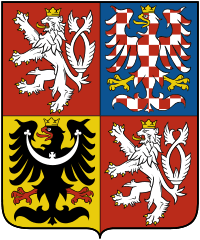Improvement of targeted prevention and early diagnostics in specific communicable and non-communicable diseases in selected socially excluded localities with Romani communities

Published
Updated 12-4-2022
- Project website updated
| Region | National coverage |
|---|---|
| Title of the Programme | Health |
| Title of the Project | Improvement of targeted prevention and early diagnostics in specific communicable and non-communicable diseases in selected socially excluded localities with Romani communities |
| Number of the Project | ZD-ZDOVA2-001 |
| Project Promoter | Motol University Hospital |
| Project Partner from Donor State | N/A |
| Czech Partner | N/A |
| Status | Estimated project duration: 04/2021 – 12/2023 |
| More Information | Target group: People at risk of poverty/in poverty Web pages: https://www.fnmotol.cz/ublg/norske-fondy/index.html |
| Total Eligible Costs | 752 447 EUR |
| Grant | 752 447 EUR |
Project description:
The project is focused on increasing prevention and timely dg. of selected non-communicable (NCD) and communicable diseases (CD) in a representative group of socially excluded communities (EC), with a special focus on the Roma community (RC). The multi-disciplinary team of this project, including e.g. general practitioners for children and adolescents, geneticists and neurologists, ophthalmologists, dentists, pediatricians, experts on children accidents, will focus on the representative group EC and will cooperate with the Coordinators of the Reg. Centers of Health Promotion (RCHP).
NCDs, which comprise e.g. neurodevelopmental dis., cong. cataracts, dysmorphism, demyelinating neuropathies, cardiogenetics, non-syndromic prelingual deafness, are increased in RP, but are often underdiagnosed in primary care. Often, specific NCDs are being characterized as ‘social neglect’ whereby from dif. diagnostic point of view it is important to consider e.g. the aforementioned sensorimotor disorders, which may be primarily responsible for cognitive, social- and school-related issues in the RP. Moreover, in EC we will also focus on the lack of awareness or insufficient access of families from EC to specialized care, increased risk of trauma or CD, including poor dental care. In addition, in EC the mentioned NCDs potentiate the increased risk of childhood trauma/accidents and CD. Therefore, we will be raising awareness of specific health issues in EC among practitioners for children and adolescents and RCHP by organising conferences. We will thus identify causes and prevalence of the NCD/CD mentioned in EC to develop expert background information in collaboration with relevant professional societies or professional organizations, and international partners from Norway and Romania, in order to optimize respective 'healthcare pathways'. In summary, we aim to improve preventive, social and health interventions for specific NCD/CD occurring in all population segments of EC.

